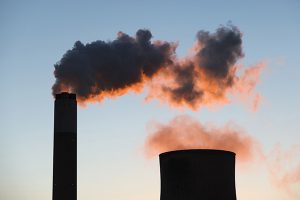Bloomberg
European Union member states backed a compromise to use permits from the bloc’s carbon market to help finance a shift away from Russian fossil fuels.
Finance ministers gathering in Luxembourg approved a compromise plan drawn up by the Czech government, which holds the EU’s rotating presidency, to free up 20 billion euros ($19.8 billion) of carbon allowances. About 75% would come from the bloc’s innovation fund, with the rest made available from front-loaded auctions.
Ministers also opted to change the share of funds countries are eligible for, taking into account dependence on fossil fuels. The money from the emissions trading system comes alongside leftover loans from the bloc’s Covid recovery fund, which member states can now use to help boost renewables and the fossil fuel infrastructure needed to rid the EU of its dependence on Russia energy.
The EU is rushing to find alternatives to Russian energy supplies following the country’s invasion of Ukraine. Moscow has curbed natural gas shipments to the continent, sparking an unprecedented crisis.
The European Commission, the EU’s executive arm, in May floated the controversial idea of selling 20 billion euros worth of permits withdrawn from the market and kept in the Market Stability Reserve — an idea that attracted little support from countries.
The original plan for the carbon market triggered a drop in permit prices as investors criticised the EU for a lack of political predictability and potentially weakening the market stability reserve, a supply-control mechanism that helped drive emissions costs to record levels this year. It also raised concerns among environmentalists that the measure could make the cost of polluting cheaper for industry.
The European Parliament’s environment committee voted on Monday to just front load permits, with the wider body set to take its stance in the coming weeks. Parliament and member states will then negotiate on the final shape of the proposal — something Paolo Gentiloni, the bloc’s economy czar, said he hoped to be in place early next year.
 The Gulf Time Newspaper One of the finest business newspapers in the UAE brought to you by our professional writers and editors.
The Gulf Time Newspaper One of the finest business newspapers in the UAE brought to you by our professional writers and editors.
